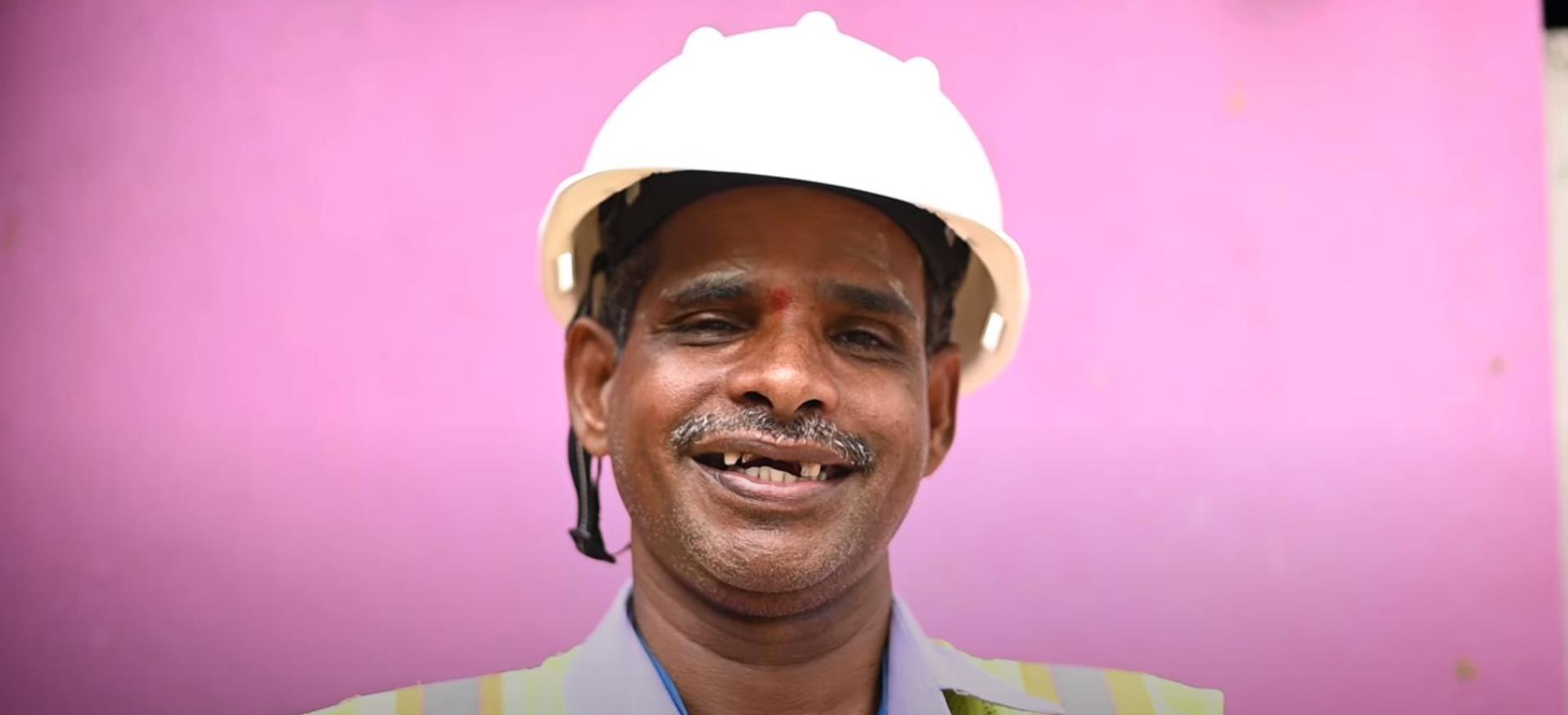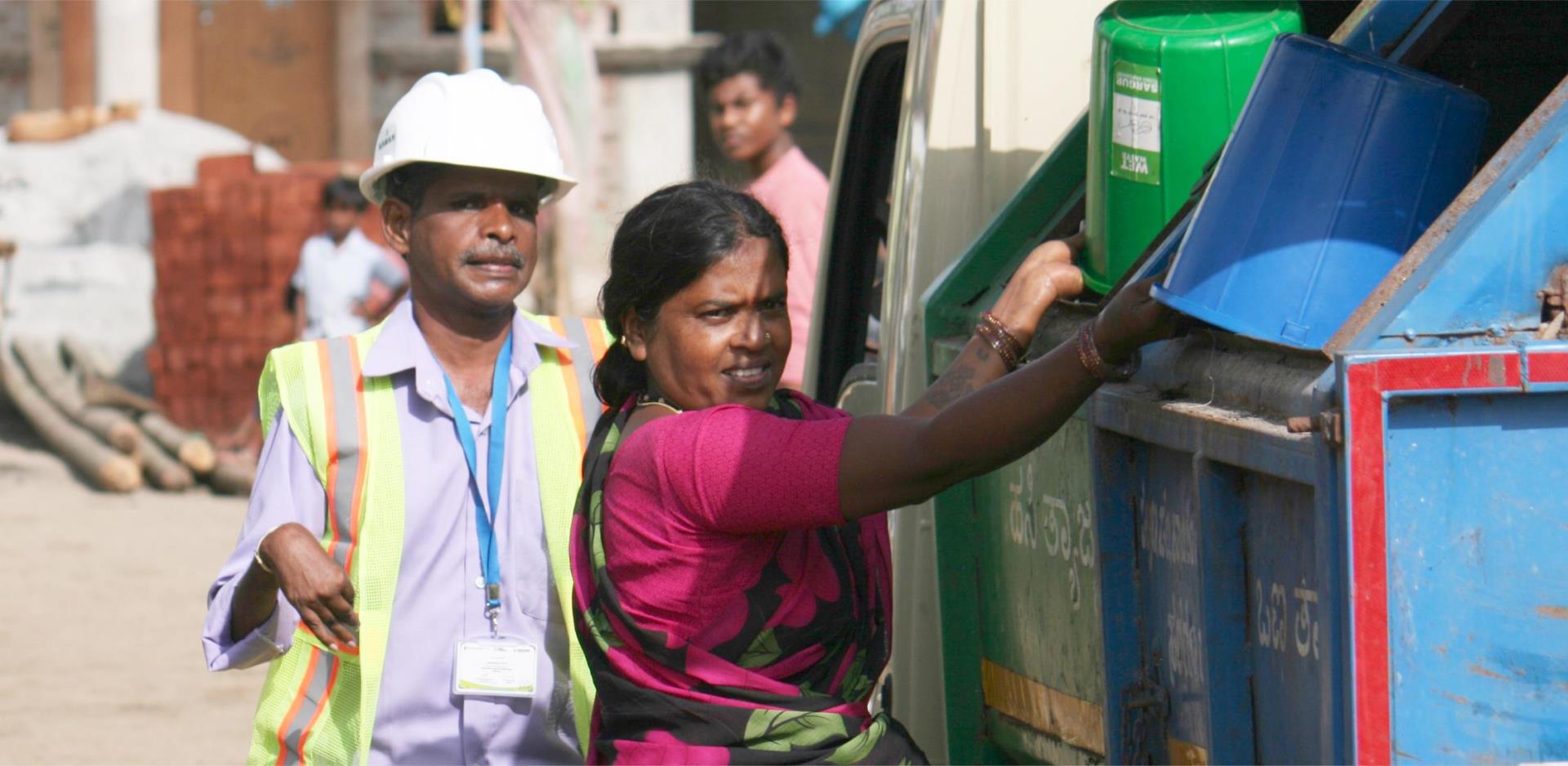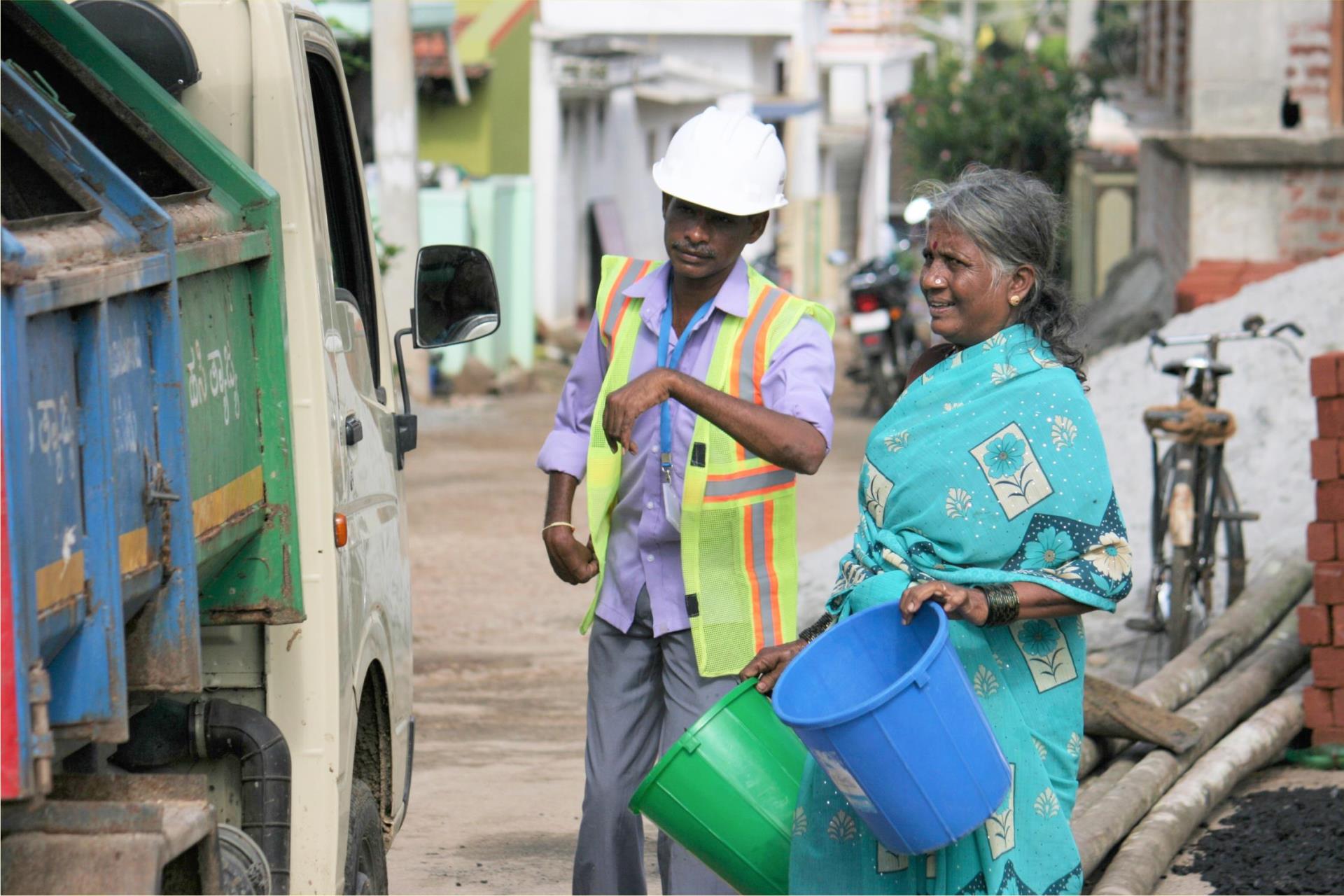Water, Sanitation and Hygiene (WASH)
Started in 1991
7 Districts in Karnataka
Building Human &
Social Capital
Family Centric
Approach
Identify local role models who become agents of change
Address Water, Sanitation & Hygiene in a holistic way through awareness generation, behavioural change, communication and advocacy
WASH in Institutions
20 Schools, 20 Anganawadi and 10 Health Care Centres
10 Gram Panchayath in Mysuru District.
Improving health, dignity & wellbeing of women, adolescent girls and children
27300 students, community members & healthcare facility workers have improved inclusive and sustainable access to water and
sanitation.
Capacity Building
Increased awareness, knowledge and practices on WASH among
200 teachers, student committees, frontline workers
Rainwater Harvesting
5 Rainwater harvesting structures with a potential to harvest 2.4 Million Liters and address shortage of drinking water
WASH in Healthcare Facilities
SVYM with UNICEF worked towards strengthening of Government healthcare facilities in Mysuru, Hassan and Kodagu districts of Karnataka for responding suitably to the COVID pandemic.
The project covered 346 Health Care Facilities (HCF), scaled up to cover 3 districts over the first phase implemented in 16 HCFs in Mysuru earlier.
346 Health Care Facilities with emergency WASH Supplies
The hygiene kits supplied potentially impacted a population of more than 70 lakhs, considering the annual average patient loads

20% Improvement of WASH in Health Care Facilities from baseline in all the Hospitals in Mysuru District
163 Handwash awareness, COVID-19 Awareness and vaccination hesitancy sessions conducted in 3 districts reaching a population of 7478
Sani-preneurs
5 Sani-preneurs producing 10000 litres of sanitizer per month with INR 50000 monthly profit

WASH CAB Training
Strengthening COVID Response through COVID Appropriate Behaviour (CAB)
5 Districts comprising Bengaluru, Dharwad, Mysuru, Kalaburgi & Belagavi engaged for COVID Appropriate Behaviour towards COVID-19 preparedness

2000+ Doctors, pharmacists, ambulance drivers, medical staff, people living with HIV, rural and urban slum communities & community radios sensitised about Covid Appropriate Behaviour
275000 Training and IEC Material distributed in 2500+ training sessions

Veerbhadra rebuilds his identity as a Swacchta Saarthi
IMPACT STORY

Inclusion is not following the line but leading it
Veerbhadra Swamy has given ‘differently abled’ the meaning it deserves. He says his distinctly different ability may work well in delivering an important message.
Veerabhadra Swamy from Saragur is one among 403 Swachhta Saarthis selected from all over the country to spearhead Waste to Wealth Mission of the Principal Scientific Advisor of Government of India.
His mission – to make Swaccha Saragur by encouraging segregation of wet and dry waste at the household level. A plan for managing it long term both scientifically and sustainably.
He knows changing the mindset of people is not easy when it comes to managing their own waste. It calls for a different approach. People look at a differently abled person with a lot of curiosity. It gives me an opportunity to convey a message that is often ignored.
When he was young, he fell from the stairs while playing with his brother and soon started having seizure attacks. His parents took him to different temples, yet the problem persisted and later affected the entire right side of his body. His right arm and leg forever caught in a tight muscle contraction. He grew up with a conviction not to depend on others, often doing odd jobs.
He’d sell lottery tickets, unwantingly earning himself a title of ‘Lottery Bhadra’. But he wanted to reclaim his identity, the identity his parents gave him, the identity others just couldn’t see. All that was needed was a disruption in his story. SVYM approached Veerabhadra through its Program for Specially Abled Persons, offering him a proposal to apply
for Swacchta Saarthi Fellowship for Govt.’s Waste to Wealth Mission & lead the campaign of household level waste segregation in his Saragur Town in Mysuru District. By fate or by design, Veerabhadra saw it as a chance to redeem his identity.
SVYM has engaged with the local community in Saragur and neighbouring areas for WASH related interventions for nearly a decade. Role models like Veerbhadra are agents of sustainable change to encourage community taking ownership of development.
Our approach of building the human & social capital serves in making development an organic process that is directed from within – facilitating sustainability by being contextually relevant & culturally appropriate.
In one year, Veerabhadra Swamy has walked about 400 km in all the 12 Wards of Saragur town, knocking on every single door to ensure that the citizens are touched by the importance of waste segregation at source. And while doing so he has reclaimed his own identity and a new title of Swacchta Saarthi.

Lived Values | Tyaga (Sacrifice)
Often SVYM members come across novel situations at work and values of Satya (Truthfulness), Ahimsa (Non-violence), Seva (Service) and Tyaga (Sacrifice) empower them to take the right decision.
Sacrificing for the net gain
Harshitha stepped on the stage at SVYM’s Viveka Scholar Program’s annual event ‘Yuva Payana 2021 as one of the alumni role models. Facing the audience of over 200 meritorious students from economically less privileged backgrounds in the current VSP batch, she shared that she got her first job a week ago. There was a pause, and in the moment Harshitha must have revisited the challenging journey of realizing her dream of working in the medical field. Of choosing a science stream, of overcoming the language hurdle coming from Kannada Medium Govt School, of fulfilling the dream of supporting
her parents after getting a job.
Every student in the audience could relate to her silence speaking volumes, each one of them knowing the pressure of lifting their family up and out of intergenerational poverty – through the power of education.
Harshitha spoke about the 6 years she was engaged with VSP Program right from PUC to B.Sc Nursing, she recalled the day when the VSP team visited her house and assured
her parents, she will one day ‘stand on her feet’. Today, working as a Nurse, she feels she is on the right course.
Isn’t it everyone’s dream to gift their parents something with their first hard earned salary. Harshitha donated her entire first salary to the VSP Program. Deep down she believed the donation will help another Harshitha fulfill a dream that will change the life of an entire family.
Tyaga (sacrifice) is one of the Core Values of SVYM. Someone who exercises Tyaga sees the virtue of that action detached from the ego, the self. Harshita saw the value of her decision in the impact it could potentially make in a student’s life over her own.
The stories of VSP students go far beyond academic excellence. VSP students have redefined the very meaning of the Program, expanding it to dimensions that are spiritual and rooted in service.
Some students right from the first VSP batch in 2006 went on to sponsor other academically meritorious & economically disadvantaged students like themselves, teaching, mentoring and guiding them to set forth on their career paths, breaking the circle of intergenerational poverty with the ripple effect of good. Some shattered the stereotypes of girls representing technical fields by becoming the first ever engineer from their village. Some starting their own NGOs and serving others.
For us at SVYM, VSP is the realization of Swami Vivekananda’s dream, of young and energetic men and women, who can transform our Nation. It is the affirmation of our development paradigm, that building human and social capital leads to positive economic consequences. We thank everyone who has supported us and through us these diamonds that shine on to illuminate the world.

